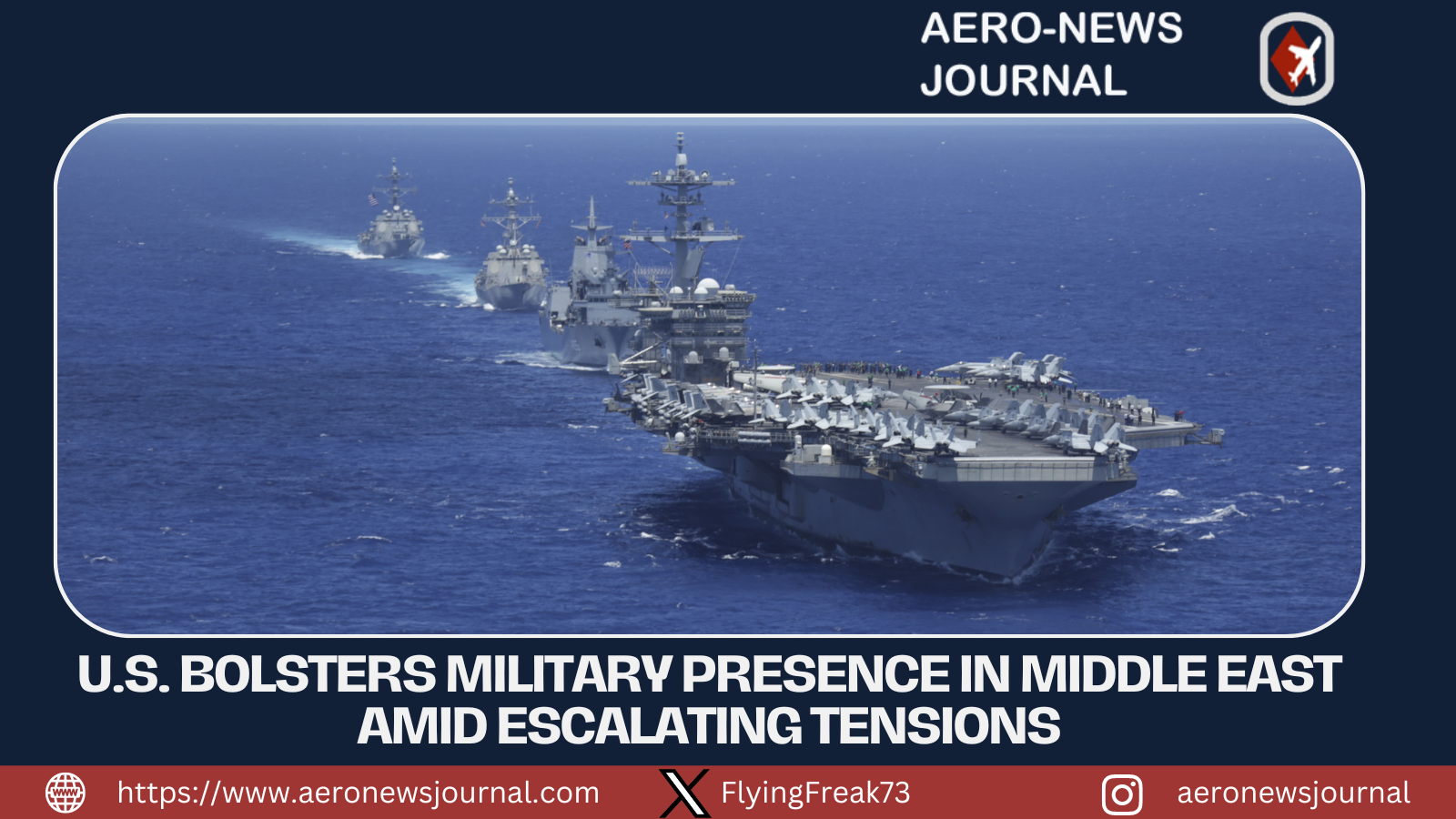
The United States is set to increase its military presence in the Middle East by deploying additional warships and fighter jets, according to recent announcements from the U.S. Department of Defense. This move is part of a broader strategy to bolster defenses in the region and provide support for Israel in the face of potential threats from Iran and its proxies. Defense Secretary Lloyd Austin has ordered the deployment of an additional fighter squadron and more warships to the Middle East. This includes the USS Abraham Lincoln Carrier Strike Group, which will replace the USS Theodore Roosevelt Carrier Strike Group currently operating in the Gulf of Oman. The Lincoln is expected to provide a consistent carrier presence in the region, ensuring that the U.S. is prepared to respond to various contingencies.
.gif)
In addition to the carrier strike group, Austin has also ordered the deployment of additional destroyers and cruisers capable of intercepting ballistic missiles. These warships will be positioned in waters within the U.S. European Command and U.S. Central Command areas of responsibility. This deployment is aimed at enhancing the U.S. military's ability to protect its forces and support Israel in the event of a conflict. The U.S. already has a significant presence in the region, including two Navy destroyers, the USS Roosevelt and the USS Bulkeley, as well as the USS Wasp and the USS New York. These vessels are part of the amphibious ready group and carry a Marine expeditionary unit that could be used for an evacuation of U.S. personnel if necessary.
The decision to increase the U.S. military presence in the Middle East comes amid escalating tensions in the region. Recent attacks by Israel on Hamas and Hezbollah leaders have triggered threats of retaliation from Iran and its proxies. The U.S. is concerned about the potential for a larger conflict and is taking steps to deter such an outcome. The deployment of additional warships and fighter jets is also intended to assist Israel should Iran respond militarily to the recent assassination of Hamas' top political leader in Tehran, which Iran has blamed on Israel.
The U.S. is committed to supporting Israel's security and is prepared to respond to various contingencies in the region. While the U.S. has not provided specific details about the deployments, it is clear that the Pentagon is taking steps to increase its military presence in the Middle East. The deployment of additional warships and fighter jets is a clear signal of the U.S.'s commitment to protecting its interests and supporting its allies in the region.
